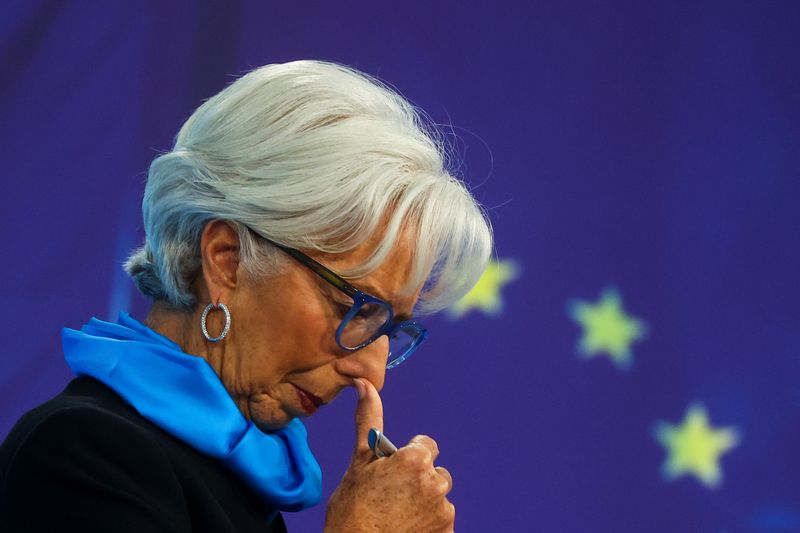FRANKFURT (Reuters) -Germany’s best-selling tabloid Bild scathingly criticised European Central Bank (ECB) President Christine Lagarde on Saturday, accusing her of destroying the earnings and savings of ordinary people by tolerating a rise in inflation.
The article, echoing a Bild attack on Lagarde’s predecessor Mario Draghi in 2019, may signal fresh hostility towards the ECB on the part of the German public, which has for a decade been sceptical of the bank’s ultra-easy policy.
Two days ago the bank left rates policy unchanged despite consumer price growth hitting a 13-year high.
The newspaper called Lagarde “Madam Inflation,”, accusing her of being a high-earner who liked wearing luxury fashion and saying she didn’t seem to care about ordinary people’s difficulties. “Christine Lagarde is melting pensions, wages and savings,” it said.
Asked about the article by Reuters, an ECB spokesperson noted that in her Thursday news conference Lagarde had acknowledged inflation is “clearly of concern” to citizens, and said policymakers did a “lot of soul-searching” before concluding inflation would ease again next year.
In an interview with German magazine Spiegel also published on Saturday, Lagarde showed sympathy with the plight of the ordinary German, saying she had noticed increases in the price of groceries at first hand.
“I do my own shopping and pay attention to how prices develop,” Lagarde said. “I see that some everyday items like yoghurt, bread or butter are becoming more expensive.”
Bild’s attack comes a week after German central bank chief Jens Weidmann, an outspoken critic of ECB policy, quit his job, arguing that 10 years in the role is enough while also warning over inflation risks.
Inflation in the euro zone hit 4.1% this month, equalling its all-time-high, while German inflation is even higher, likely approaching 5% by year end.
($1 = 0.8650 euros)
(Reporting by Balazs KoranyiEditing by David Holmes and Frances Kerry)


















